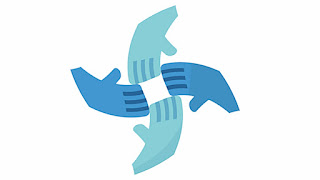Having moral reasoning and speech ability makes a human more complex than other social animals. Political animalness sprouts from within the social nature of humans. Aristotle argues that man is either a political animal (the natural state) or a reject like a “bird which soars alone” (4thC BC).
The natural state of humans is at aspiring to develop, maintain and improve their nature as intelligent and social beings. Political animalness is therefore like a moral prescriptive idea entangled in human social nature. It's concerned with the prosperity and achievements of the people as a whole entity.
It is the human animal nature of the social relationship with which society, a family, a clan, a group, a community, or a tribe of people can get their needs without a sophisticated system as such like a political entity.
Hence, the human political nature is the creation of the open egoistic state of dominance. It's an evolving morality that is opposite to compassion for the general psychological characteristics, feelings, and behavioral traits of humankind, respected as experienced by all humans, but taking advantage of them as weaknesses.
Social Animals by Nature
Being social is natural by design, being political is human by design. Humans design the political systems out of the core social existing system in nature such as family, clan, and tribes.
It occurs naturally, without human intervention to become social individuals. Society is a natural entity that affects each behavior for the common good of each member of society.
Social individuals such as bees, termites, and ants can live in groups simply because they are social. There isn't anything like riots, striking, and looting in the society of the same species in the insect world.
There is no such political entity to guide and control them, but natural social instincts are enhanced by chemical communication. Working jointly to achieve the best way to get to their needs as a whole community.
A human being is egoistic by nature. This character draws humans into becoming manipulative so that they can feed their pride and egos, hence then they fit to be political animals.
Evolving from our political animalness into those flying birds is a wish to some. When personalities and human nature come into clash. Reasons for a logical and peaceful course of life are of great value to some. That's all about when it comes to a universal social nature of life.
"I love books, I love art, I'm a fanatic nature and wildlife person. People assume I'm a political animal, power-hungry, wanting to run for office. And anyone who knows me knows that none of that's true." David Mixner
A human can be perceived as a far better social individual because of being able to use language to communicate and assert their policies as a part of a political entity.
Political Animalness With Social Nature
We can take democracy, capitalism, and socialism as political ideologies highly characterized by human behavior, and economic public relations.
Likewise, political ideologies do depict political animalness with evolving ideas, affecting how humans behave in their social contexts parting away from their pure nature of social animalness. Assimilating human nature with the social process.
Thus, as a social animal, politically a human can be perceived on the left, the words "left" and "leftist" imply that side of the political scope historically attributed with fairness and prominent or state management of the major groups of political and economic life.
The main variations between left-wing and right-wing principles are halfway around the rights of individuals versus the power of the authority. Left-wing notions are liberal in that they think society is best served with a widened role for the state.
The social agenda becomes a political agenda from which new policies are drawn and reinforced to take effect into the social nature of the particular society. The policies draw lines between leftists and rightists.
The policies and political ideologies do change along with a change in the social order. Technology advancement and demographic transition as well as economics are the catalysts for the change in social order and politics. Therefore experiencing a social evolution.
As human social order change over time, our social counterparts birds and insects are communities with a natural social order. Their social order does not change unless there's an evolutionary force.
In the natural division of labor in eusocial insects, Queens specialize in reproduction and give a sign of their presence and fertility to others. For example queen pheromones. Workers take over specific duties of nursing, entrance guarding, or foraging and also can signal their task to other workers.
Hence, humans are architects of their social systems. We invent new political ideas to improve the shortcomings of the failed social systems, while in nature the social order doesn't shift.
For example the beginning of workers' movements in the 18th century alongside the shift of roles in households based on gender rights and so on. The ideas of a better society are characterized by modern civilization and a new family structure as well.
Being social individuals, humans have therefore developed into becoming political individuals and surpassed their animal nature, which signified them as complex social individuals, who could achieve their goals collectively as a whole community.
Generally, being a political animal is a result of social evolution to ensure the survival of the human species. Evolving from merely being a social animal into a political animal, solving human problems which shift social order and economic relations.
Human animalness is social, and human political animalness is evolutionary. Nature breathes freedom like a bird that flies away to social animalness, while humans' minds are occupied with political ideas being afraid of their nature as humans.




informative
ReplyDeleteNice blog
ReplyDeleteThanks for this!
ReplyDeleteThank you for sharing
ReplyDeleteThanks for sharing nice blog
ReplyDeleteWhat a nice post is!
ReplyDeletebeautiful
ReplyDelete